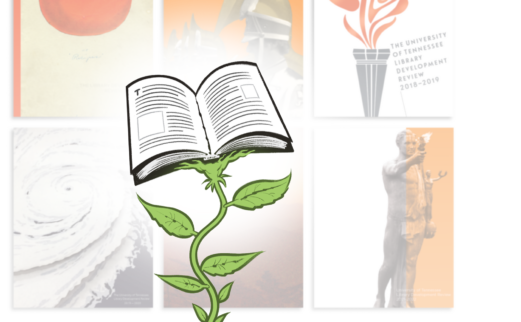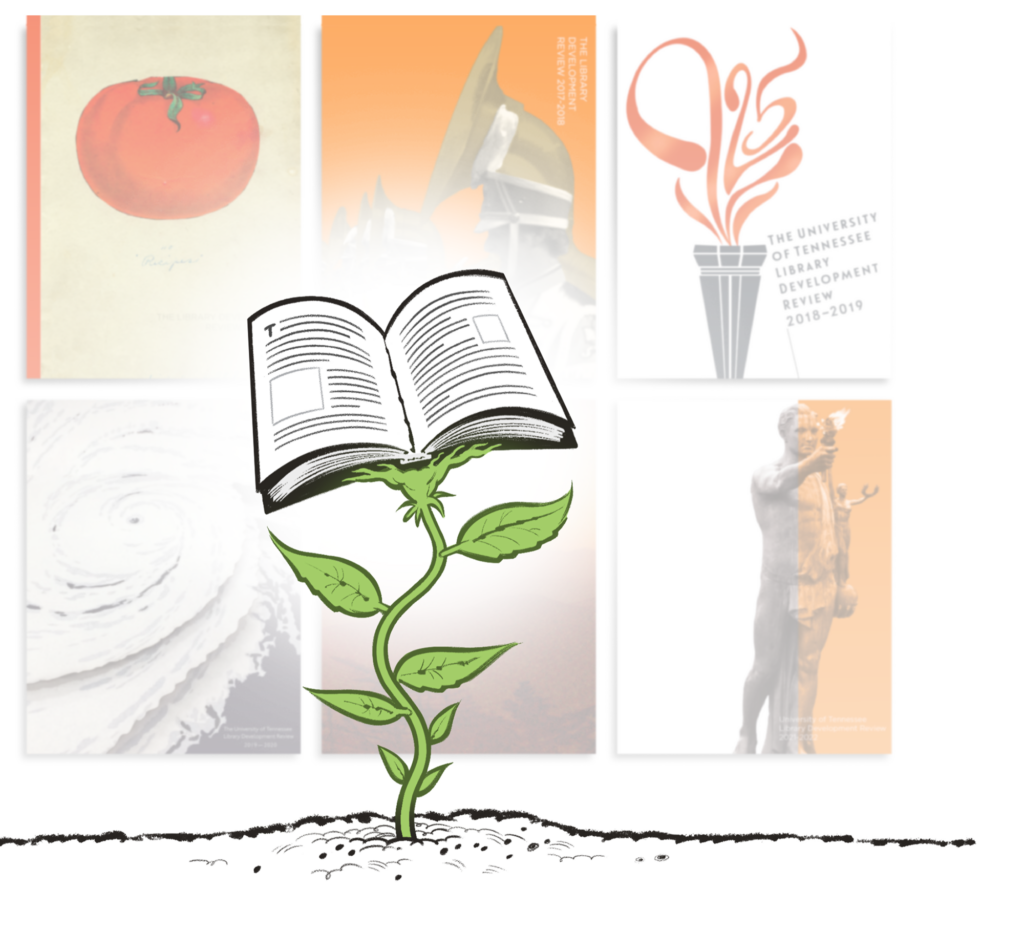
In 1960, the University of Tennessee Libraries published the first Library Development Report celebrating private support of the libraries and recording notable additions to our collections. Over the years, our annual publication focused particularly on extraordinary gifts of papers, manuscripts, and rare books. In the 2000s, the renamed Library Development Review evolved into a sleeker full-color magazine with lots of stories about programming and spaces that serve students. The first issue that followed the start of the global pandemic—bound in a cover that bore no title—focused on the UT Libraries’ response to the COVID-19 crisis. We are ready to turn the page!
Welcome to Speaking Volumes. Our renamed print publication will bring you varied content about people, spaces, collections, and scholarship. The unifying theme is how the UT Libraries impacts and transforms lives through a shared commitment to discovery, creativity, learning, and engagement. Stories from the physical magazine will live on a website of the same name (volumes.lib.utk.edu/features).
The concept of organic unity as it relates to narrative was first put forth by Plato in The Republic and later clarified by Aristotle in Part 8 of his Poetics as “a complete whole, with its several incidents so closely connected that the transposal or withdrawal of any one of them will disjoin and dislocate the whole.” It is with Aristotle’s view of the narrative form in mind that we begin this new narrative journey, treating our news site, our e-newsletter to donors and friends, and this annual publication you have come to know (and, we hope, love) as interconnected parts of a larger whole.
Speaking Volumes will thus become a year-round resource allowing UT Libraries staff, faculty, and administrators to showcase their work and explain resources, events, and other topics to a broad audience.
By rebranding this longstanding publication, we hope to remind ourselves and our audience of the importance of a unified narrative, ensuring that our audiences are well informed and that we are, in fact, speaking volumes.
Recent News
More News- Pride of the Southland: History of UT’s Marching Band
- Fall 2024 Awards and Recognitions
- The Pursuit of Justice: Evidence from our Special Collections
- Reduced Library Hours Sept. 20 & Sept. 22 Due to Morgan Wallen Concerts
- Associate Dean of Libraries Teresa Walker Retires
- New Self-checkout Experience at Hodges Library
- Not Your Grandmother’s Library
- What’s New? Library Resources and Free E-textbooks available in Canvas
